The story of overnight success after 25 years in the business is a staple of showbiz mythology. Maybe the British mezzo-soprano Sarah Connolly is not the perfect example of a career conducted entirely beneath the radar – she sang "Rule Britannia" at the 2009 Last Night of the Proms, wearing a replica of Nelson's Royal Navy uniform, and the following year was awarded a CBE – but she still felt able to declare herself "very, very surprised" when last month she won the Royal Philharmonic Society singer of the year award, as well as being shortlisted for the inaugural Opera awards.
"I always thought that rewards like this went to people with record contracts and who are well-known outside of the music world as well as within it," she says. "I actually checked that I had been nominated even after I had been told. I think I had inured myself to these sort of things because they hadn't been coming my way. I told myself that my reward was getting work, which of course it is. But it was also nice to get this sort of public pat on the back."
In the early years of her career, Connolly was most closely associated with the contemporary classical repertoire and also with jazz. (A few weeks ago she was one of the party that scattered the ashes of the late Richard Rodney Bennett – master of both – on the beach at Aldeburgh.) And while both types of music are still close to her heart, she has gone on to receive acclaim in the mainstream operatic repertoire of Mozart, Wagner, Berlioz and Strauss and, especially, in the field of the baroque.
Next Saturday Connolly sings Phèdre in Glyndebourne's new production of Rameau's 1773 opera Hippolyte et Aricie. The story comes from Euripides via Racine and, despite the title, focuses on Phèdre, wife of Theseus (Thésée in the opera), and the fatal consequences of her infatuation with her stepson Hippolyte, who is in love with Aricie.
"Whatever version you look at, it is the fallout from the relationship between the younger man and the older woman that causes the problems for everybody else," says Connolly. "Phèdre is the passion of the story and the person about whom I hope the audience can say 'that has been me', or at least 'could have been me'. And I don't think she is someone to be laughed at or scorned. Anyone can fall in love with someone unattainable."
Conducted by the doyen of the French baroque William Christie, the production is directed by Jonathan Kent, who has spoken about their attempt to reinvent the baroque opera for the 21st century, remaining true to the spirit of its aims to "astonish and delight" while maintaining at its core an intellectual discourse.
Although Connolly says the conventions of French baroque opera might not be familiar to a modern audience – "there are more individual set pieces than in later composed-through works" – she is sure that any festival audience will recognise and respond to the traditionally spectacular prologue, which in this production features a giant fridge. "When that curtain goes up there is no doubt of the intention to 'astonish and delight'".
Connolly, who has just turned 50, is no stranger to the Glyndebourne festival, having been, like that other great mezzo Janet Baker, a member of the chorus there before becoming a principal singer. Again like Baker, her path from the chorus to top of the bill was not a straightforward one.
As a child she sang "a bit too loudly" in her primary school choir and was a "precocious" pianist who could compose in the style of Mozart or Debussy when aged 10. At boarding school she was also a huge fan of soul music. "I had this fascination for how songs are put together and so would really listen to how Earth, Wind & Fire would orchestrate a song. Where was the bass? The harmony? What instrument was playing what? It was quite instinctive, but it meant that I could play all the chart songs – at a time when the Radio 1 chart actually meant something – on the piano for my friends, which was quite a valued skill." At home she would sing along to her mother's Janet Baker records without any notion that she would one day sing a similar repertoire that has included the great Baker roles of Maria Stuarda, Giulio Cesare, as well as Phèdre. "And that's where I first heard Hippolyte et Aricie and I do remember thinking what a powerful piece of music it is."
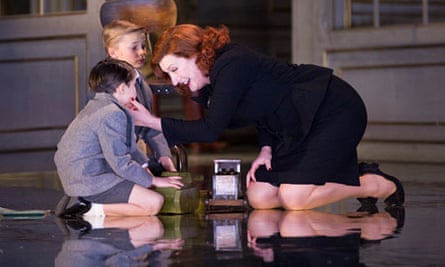
Connolly auditioned for the Royal College of Music as a pianist with singing as a second study. However, soon after enrolling, the two disciplines were made joint-first studies; she won a singing prize and was given her first solo roles, but by the time it came for her to turn pro, the idea of becoming a principal seemed a step too far.
"The divide between who I was at the time, and what I saw on stage was just too great. I didn't know how I could be that person on the stage. You could call it a lack of confidence, but it wasn't just that. And as my voice wasn't leading me there, I tried to find another way in. Little did I realise how difficult it would be to get back into that world."
As she was interested in new music, joining the BBC Singers was a logical move. After five years, she joined the Glyndebourne chorus. "At the BBC, I was getting a lot of quite decent solo work with composers such as Boulez and Ligeti, who knew me by name. Yet when I auditioned for opera roles, people didn't seem to like my choral background. I was now around 30, older than some of the others, but I never thought of giving up."
Her breakthrough came with a change of audition material – "I sang 'Give Him this Orchid' from Britten's Rape of Lucretia, which was unusual in music terms, but I could lose myself in the character" – and a casting director willing to take a chance. She sang Annina in a Welsh National Opera Der Rosenkavalier and then Charlotte in an English Touring Opera Werther. Throughout the 90s, she also followed the lead of her idols – Anne Sofie von Otter, Frederica von Stade, Ann Murray and, "of course", Janet Baker – with an exploration of the baroque. It led to a part in a Gramophone-award winning recording under William Christie of Rameau's Les Fêtes d'Hébé, and to the role of Xerxes, at the English National Opera in 1998.
"So while in one sense I felt out of my depth and terrified – not least because my predecessor in the role was Ann Murray – I also felt comfortably informed about the music. The first night was real rabbit-in-headlights stuff. I got into my dressing room after that long first act and sat there with my head in my hands feeling numb and sick. Then John Berry of the ENO popped his head into my room and said, 'It's going great, isn't it?' And I said, 'Is it?' I just couldn't tell. But by the third show, I was into my stride and knew I was on to something."
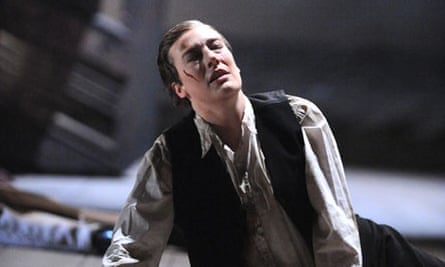
She was. And her career continued to progress, albeit not always along an orthodox path, with Connolly self-funding her first recital-CD: "I realised that if you didn't have a recording on the market, then opera houses weren't that keen on you. It was one of those chicken-and-egg situations, so I thought, 'by hook or by crook … '" She says the recording helped her get the title role in the much-praised 2005 Glyndebourne Giulio Cesare. Working with director David McVicar, she was encouraged to suggest her own ideas for the role and also to follow her instincts.
"It took a while, but I do now have the confidence to really think about a role in terms of who the character is and how it should be played. Especially if people say, 'That's the way it's done.' That's a red rag to me now." She says the experience of attempting to portray a more sympathetic version of Fricka in the recent Royal Opera Ring cycle was "the greatest experience I've had in my career so far. I thought very deeply about who she was and how she could question Wotan without being shrieky and looking daggers at him. I am a lyric singer, not a dramatic mezzo. My strength is not to stand there and make a lot of noise. My strength is a more psychological investigation using vocal colour. It's taken me a little time, but that's now what I like to do, and that's what I'm now doing with Phèdre."
* Rameau's Hippolyte et Aricie is streamed on the Guardian live from the Glyndebourne festival on 25 July. More details at www.guardian.co.uk/glyndebourne
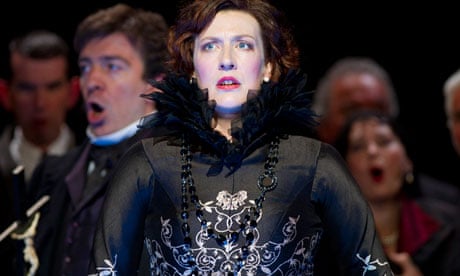
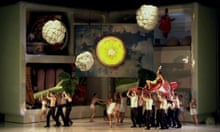
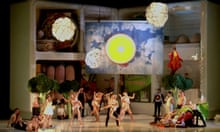

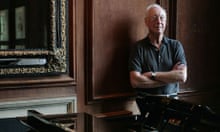

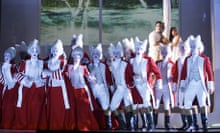
Comments (…)
Sign in or create your Guardian account to join the discussion